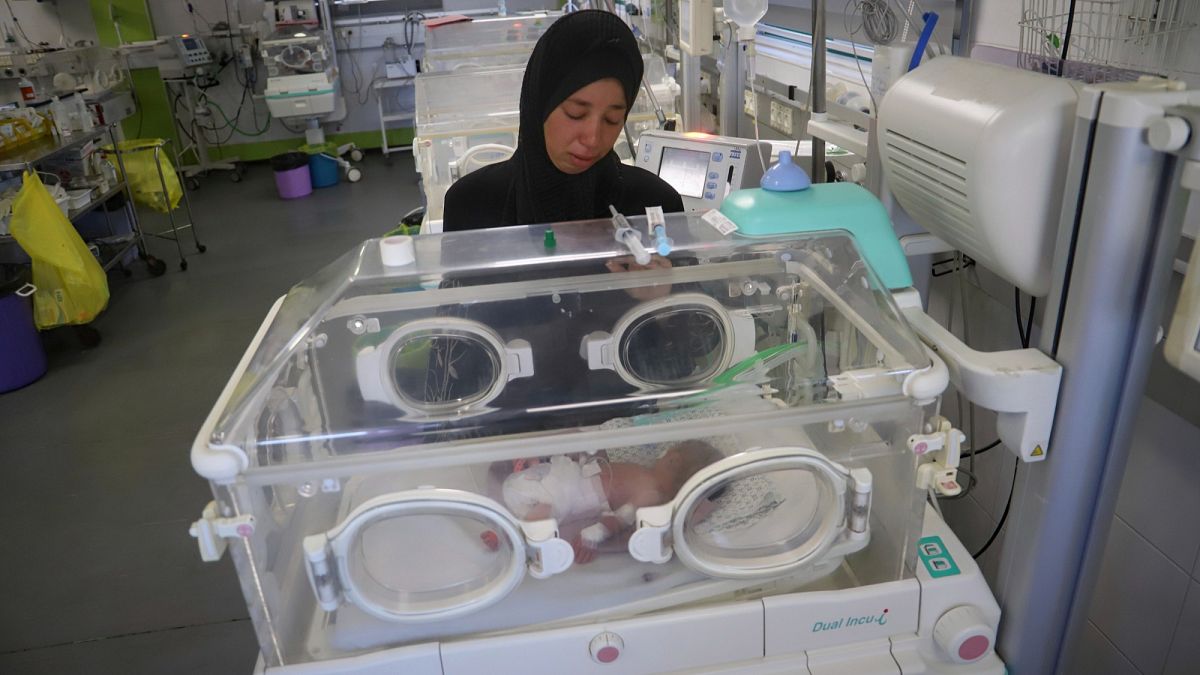

In a world facing diverse challenges, recent reports highlight various socioeconomic and health-related issues impacting different regions. From Gaza’s urgent need for baby formula to the hurdles faced by asylum seekers in the UK, these stories reflect a broader narrative of compassion, resilience, and the ongoing quest for equitable solutions.
In Gaza, a pressing concern has emerged as mothers and healthcare professionals raise alarms over the severe shortage of baby formula. This scarcity is attributed to the aid blockade by Israel, sparking fears for the well-being of infants in the region. The situation underscores a humanitarian crisis overlooked amidst broader geopolitical tensions. Israel, however, maintains that it is facilitating the entry of necessary aid into the area. Both sides stand amidst a complex situation where ensuring access to essentials is paramount for nurturing the youngest and most vulnerable members of society.
Meanwhile, on a global scale, a setback in the fight against preventable diseases looms large with the United States’ withdrawal of funding from Gavi, the Vaccine Alliance. This decision comes as a significant blow to the organization’s efforts to raise €7.9 billion needed over the next five years. Gavi plays a crucial role in providing vaccines to low-income countries, a mission that now faces financial hurdles as it endeavours to curb the spread of infectious diseases. The impact on public health initiatives could be profound unless alternative funding sources are secured to support the health infrastructures of these nations.
Turning to Europe, recent developments in the United Kingdom highlight the challenging reality for Ukrainian refugees. Many who fled the conflict instigated by Russia find themselves denied asylum based on assertions that it is now safe to return. Law firms report consistent cases of refusal, illustrating the difficulties faced by families striving to establish a future in the UK amidst ongoing unrest in their homeland. The emotional and practical struggles faced by these individuals paint a broader picture of displacement and the longing for stability and security.
In England, transportation systems present another dimension of public service challenges. Despite concerted efforts and financial investment from successive governments, local bus services continue to decline, according to a National Audit Office report. With half of operators’ income reliant on public subsidy, viability concerns are widespread. Passenger numbers remain below pre-pandemic levels, with a notable 15% reduction in travel miles outside London since 2019. The decline in service availability particularly affects rural communities, emphasizing the need for innovative solutions to revive these crucial lifelines and support mobility for all citizens.
Lastly, a concerning social issue arises in London, where disparities in the criminal justice system have surfaced. Black children arrested in the city are reported to be 15% more likely to be criminalized compared to their white counterparts. This disparity, revealed by a report from the Youth Endowment Fund, highlights a gap in access to diversion programs such as mentoring and counseling, which are instrumental in preventing early criminal records. Addressing these discrepancies through equitable support structures can pave the way towards a more just system for all.
Together, these narratives weave a tapestry of challenges and potential pathways for collective action. They remind us of the interconnectedness of society and the importance of fostering compassion, justice, and proactive measures to improve lives and ensure hope for future generations.
Source: {link}
